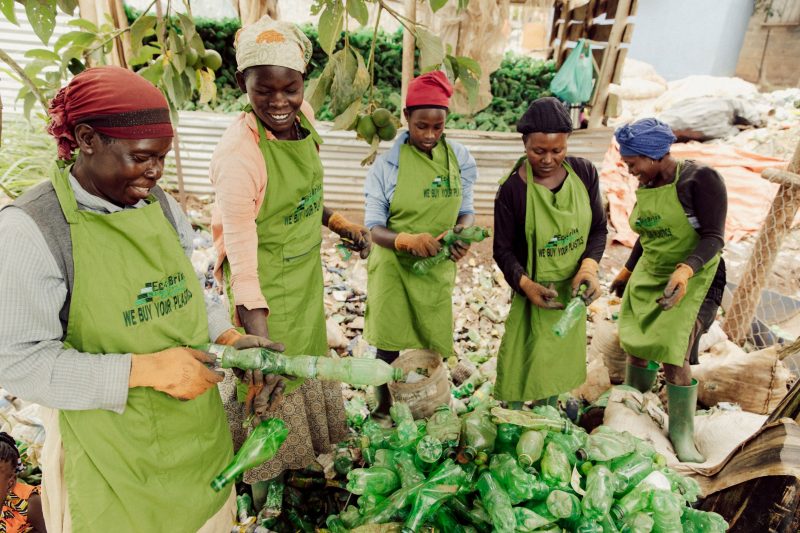

Afri-Plastics Challenge awards £750,000 to 15 finalists transforming attitudes to plastic pollution
- Afri-Plastic Challenge names 15 finalists in the ‘Promoting Change’ strand of the challenge prize, supporting creative projects that influence behaviour change around plastic waste across sub Saharan Africa
- Each of the 15 finalists has been awarded £50,000 to grow and gather evidence of success of their projects. Three winners will receive £250,000 each in March 2023.
- Finalists include South Africa’s Captain Fanplastic schools programme, virtual reality storytelling in Kenya and programmes to empower women to become agents of change in Burkina Faso, Senegal and Kenya
- Finalists named in Botswana, Burkina Faso, Cameroon, Ethiopia, Ghana, Kenya, Nigeria, Senegal, South Africa and Uganda
15 teams of innovators from across sub-Saharan Africa have been named finalists in the third strand of the Afri-Plastics Challenge with solutions promoting behavioural change around plastic usage in their community.
They include Captain Fanplastic, a pirate-themed education programme in South Africa that engages children in beach clean-ups and pollution prevention through storytelling and crafting so that young participants recognise waste plastic as treasure, not trash. Another finalist is Kenya’s Ukwenza VR, using virtual reality to tell the story of plastic pollution and the various ways it can damage the environment, while Catharina Natang’s training programme for fashion students in Cameroon, is encouraging young designers to embrace sustainable fashion.
Each of the 15 finalists will receive £50,000 to invest in and develop their projects in the next seven months. Three winners will be selected and announced in March 2023, each taking home £250,000 each.
The Afri-Plastics Challenge, from innovation experts Challenge Works and funded by the Government of Canada, is rewarding the most promising sub-Saharan African innovators using innovative engagement strategies such as gamification, incentives and storytelling to promote behaviour change and educate communities, as well as provide insights into the roles that women and girls play across the plastic value chain.
Honourable Harjit Sajjan, Minister of International Development, Government of Canada said: “Plastic pollution is threatening our ecosystems and food systems. I strongly believe that we must empower communities across the world to make sustainable choices. Choices that result in a better, more environmentally friendly future for all. I look forward to seeing the hard work and innovation of these amazing finalists, and can’t wait to contribute our expertise and efforts in supporting Africa in becoming a plastic waste-free continent.”
A number of finalists include programmes that empower women to become recycling agents, championing the advantages of the circular economy in their communities, and creating businesses that find a new life for plastic waste – including Kenya’s M-taka, Burkina Faso’s Les Ambassadrices de l’Environnement, and Senegal’s Solutions Eco-Cultur’elles.
Meanwhile incentive schemes that reward recycling and making sustainable choices have also made the finals. South Africa’s Paycycle uses a Point-of-Sale digital reward system promoting non-plastic, recyclable and reusable shopping bags. Using a fleet of mobile applications customised to shoppers of various economic classes, Paycycle tracks consumer’s shopping bag usage over partnering shops and rewards consumers with loyalty points for purchasing and reusing bags.
Constance Agyeman, Director of International Development, Challenge Works said:
“The issue of marine plastic pollution has grown rapidly in recent years. It is crucial that awareness translates into action and long-term behaviour change, at individual and collective levels alike. The 15 finalists will be supported over the course of the next seven months to develop their communications campaigns and projects. The £50,000 grants will support teams to generate evidence of change around reducing littering, segregation of plastic waste, choosing reusable options, or refusing single-use plastic all together.”
To find out more about the Afri-Plastics Challenge and the 15 finalists in the Promoting Change strand, please visit afri-plastics.challenges.org





